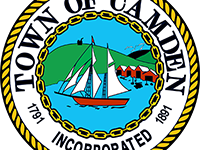Can we commit to community well-being?
COVID-19 has brought public health out of the shadows. Many may be shocked to learn that early successes in infectious diseases, food safety, maternal and child health, family planning, workplace safety, vehicle safety, reduction in tobacco use have contributed more to extend life expectancy than modern medicine.
As the name implies, public health deals with health at a community, state or national level and seeks to understand causes, and develop control and prevention strategies. Yet in our quick-fix world, public health faces a tough slog. We prefer pills or operations to healthful eating and regular exercise.
Meanwhile our fragmented U.S. health system underwhelms. U.S. COVID-19 infection and death rates are dismal. We rank 43rd in life expectancy while spending almost twice as much per capita ($10.2K per Kaiser Family Foundation) as the average wealthy country ($5.2K).
U.S. health sector laid off 1.4 million workers in April 2020 as patients avoided primary health care.
Elective procedures were deferred, starving health systems of a prime source of revenue.
38+ million workers filed for unemployment, disrupting employer-based health insurance.
Initial testing glitches and unsteady leadership led to critical delays, hampering timely COVID response.
Ronald Reagan demonized government and taxes some 40 years ago, touting competition and markets as the answer, labeling Medicare socialized medicine. Yet, who will invest in prevention when cures are more profitable?
I hope we employ consistent, diligent prevention measures as we wait for a vaccine or treatment for COVID-19 (wearing masks; social distancing; strict personal, workplace and public sanitation; fortifying of individual immune systems).
Longer term, I hope we commit to enhancing community well-being by:
1) redesigning our health system to emphasize ongoing analysis and planning; prevention and primary care; universal health insurance coverage; and
2) mitigating the gaps left by our profit-oriented healthcare system, by either radically changing the incentives or providing alternative public solutions.
How we fare with COVID-19 will bode well or ill for our response to the next pandemic, or the elephant in the room, our climate crisis.
Bob Kohl, retired in Liberty after 40+ years in public health
Event Date
Address
United States






















